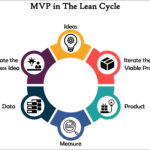Software disruption in real estate sector in 2023
Introduction:
In a world driven by technological advancements, the real estate sector is not immune to the transformative power of software technology. From streamlining operations to enhancing customer experiences, software solutions have become a game-changer in the industry. In this blog post, we will explore the revolutionary transformation in real estate due to advancements in software technology. This progress is unlocking a whole new realm of possibilities and reshaping the way traditional practices are carried out.
Artificial Intelligence (AI) and Machine Learning (ML):
AI and ML are automating processes that transform the real estate industry and provide valuable insights. AI-powered chatbots are being used for customer support, assisting potential buyers or tenants with property inquiries and scheduling viewings. ML algorithms analyze large datasets to predict property values, rental yields, and market trends, aiding real estate professionals in making informed decisions. Property management platforms powered by AI can automate various tasks, including rent collection and streamlining the process and reducing manual effort, maintenance scheduling, and lease management, improving efficiency and reducing manual errors.
Predictive Analytics and Data Visualization:
Real estate professionals now have access to advanced predictive analytics tools that leverage historical data and market trends to forecast property values and rental demand. These analytics solutions provide valuable insights into market dynamics, enabling professionals to identify emerging trends, invest strategically, and optimize portfolio performance. Additionally, data visualization tools help visualize complex data sets, allowing professionals to understand and communicate information more effectively.
Blockchain Technology:
Blockchain technology is gaining traction in the real estate sector due to its potential for increased transparency, security, and efficiency in property transactions. Blockchain can streamline processes such as property registrations, title transfers, and verification of ownership. It relinquishes the need for intermediaries and provides a tamper-proof and decentralized ledger, reducing fraud risks and enhancing trust in real estate transactions.
Virtual and Augmented Reality:
Virtual and augmented reality technologies continue to evolve, offering immersive property experiences. Virtual reality enables potential buyers or tenants to explore properties remotely through virtual tours, reducing the need for physical visits. Augmented reality allows users to visualize potential renovations or interior design changes within a property. These technologies enhance the decision-making process, improve customer engagement, and save time for both buyers and sellers.
Smart Home Integration:
Smart home technology is becoming increasingly prevalent in the real estate sector. By Integrating IoT devices and home automation systems, real estate professionals can offer enhanced living experiences to homeowners. Smart thermostats, lighting systems, security devices, and energy management solutions enable residents to control and monitor their homes remotely. The integration of these technologies adds value to properties, attracts tech-savvy buyers, and promotes energy efficiency and sustainability.
Cloud Computing and Mobile Applications:
The real estate sector has witnessed a significant transformation with the advent of cloud computing. This innovative technology has revolutionized data storage, accessibility, and collaboration, enabling secure storage and easy access of property-related documents and data from any location. As a result, remote work and collaboration have become seamless and efficient in the real estate industry. Mobile applications allow real estate agents, property managers, and buyers to access property information, schedule viewings, submit offers, and manage transactions on the go, enhancing convenience and efficiency.
Conclusion:
Software technology has ushered in a new era in the real estate sector, revolutionizing how properties are managed, marketed, and transacted.
By leveraging property management software, virtual reality, data analytics, digital marketing, streamlined transactions, and smart home integration, real estate professionals can unlock new opportunities, improve operational efficiency, and enhance customer experiences. Contact our team for digital transformation in your business.
Embracing these digital advancements is no longer an option but a necessity for those seeking to thrive in an increasingly tech-driven industry. The real estate sector stands to benefit immensely from the continued innovation and integration of software technology in the years to come.





